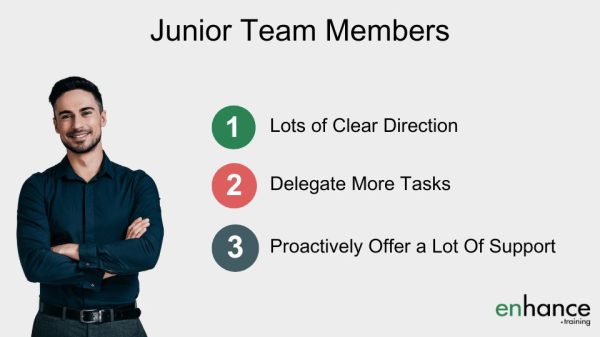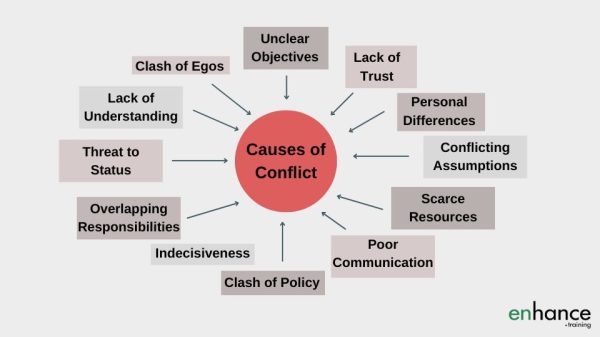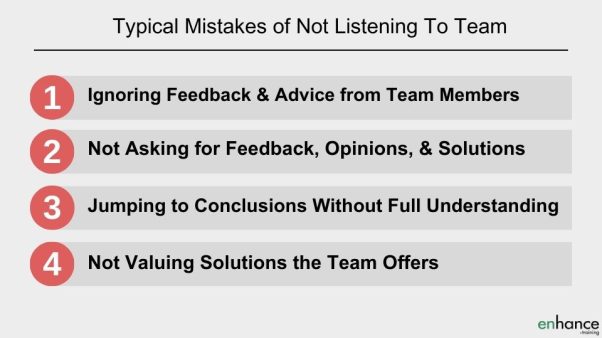8 Common Mistakes Managers Make That Kill Team Performance and Morale

Learn the common mistakes managers make that kill team trust, respect, and appreciation of the manager so you can avoid making them. These are common mistakes of new managers. I have seen plenty of more experienced managers still making these typical mistakes many years into their management careers.
Each of these 8 typical mistakes makes the transition to manager a lot harder and more painful for you and your team. Any manager struggling to gain the respect of their team, struggling with team motivation and performance will be making a least one of these common mistakes. Each of these common mistakes managers make are fundamental mistakes, not minor mistakes. Making any of them has a big negative impact on team performance.
For each of these mistakes I explain the impact on the team and performance and what steps you should take to avoid making these 8 common management mistakes.
8 Common Mistakes Managers Make That Kill Team Performance and Morale
- Not getting to know your team well enough
- Failing to communicate expectations clearly
- Thinking team rules don’t apply to you
- Managing with a one size fits all
- Failing to truly listen to the team
- Using an I Know Best approach
- Avoiding conflict
- Not investing in yourself
Watch on YouTube
Listen on Podcast
Not getting to know your team well enough – The first of common mistakes managers make
As a manager, your team are the tools through which you will create increasing amounts of value for the company you work for. The better you get to know them, the more likely you will maximise the value you enable them to create, increase the output they deliver and build their motivation and enjoyment of being at work.
A big mistake far too many managers make is not getting to know their team members well enough.
Spend time with each team member. Work alongside them. Ask them for opinions, advice, information, decisions, and solutions. Ask them questions about what they like and don’t – inside of work and outside. Get to know their personalities.
Learn about these 7 areas as a minimum:
- The extent and level of their skills
- Judgement and decision making
- Their character & values
- What energy levels
- Their ambitions and dreams
- How they react in different situations
- Their desire and ability to learn
Don’t make the common manager mistake of not really getting to know your team.
By putting in the effort to learn about each team member, you will gain a huge amount of appreciation and respect. Who doesn’t like a person who is genuinely interested in them. You will also learn a lot about their capabilities and preferences.
You will know what you can delegate, how much support you will need to provide in a wide range of situations. Knowing them will enable you to encourage them to deliver as much as possible while ensuring they enjoy being at work.
Great managers play chess, average managers play checkers. Don’t make the mistake of only aiming to play checkers. Get to know your team members at as a deep a level as practical.

failing to communicate expectations clearly – The second of the typical mistakes managers make
You create expectations with everything you say and do. Every action you take, every decision you make communicates your expectations on some level to the team.
One of the common mistakes of new managers is thinking that telling the team the expectations is enough. It is not.
Work to create consistency of messaging AND alignment of what you say and what you do. The clearer the expectations, the less confusion, the more psychological safety and the higher the team performance.
A classic mistake of creating confusion. The manager sets the team goals which are ambitious and stretching through targets on the wall and PowerPoint presentations. Then the manager retreats into their office. The team don’t know what the manager is working on or how it helps them. They might be thinking “Does the manager care about the goals?”
Don’t make this type of management mistake. To reinforce the goals, the manager should be visibly working to help each team member overcome obstacles; working to get the right resources in place at the right time; working to protect the team and keep the focus on the most important areas and activities.
Spend time thinking about all the different ways you might communicate expectations to the team. Try to keep what you say and what you do aligned as possible.

thinking team rules don’t apply to you – mistakes 3
Many managers don’t realise that they are in the spotlight or on a stage. Don’t make this mistake! Every team member is paying a lot of attention to what you do, the decisions you make, the actions you take and the behaviours you display.
Managers make the mistake of setting rules for the team and assume they don’t need to follow those rules. By not following your rules, you are storing up a lot of problems for yourself. Your team will not be impressed at what might be perceived as a petty display of power or a way to give you an ego boost. Don’t make this management mistake that is certain to damage the trust and respect the team have for you.
If you want the team to follow the rules you have set for them, you must visibly demonstrate you are following the rules too.
A management position is a privileged position. Use the power you have carefully and in service of helping the team. Do not make the mistake of using management power directly for personal gain.

managing with a one size fits all approach – The fourth of the common mistakes managers make
Getting the wrong levels of support and direction for any staff members is going to annoy them and be a disaster for team performance. Typical mistakes include micromanaging higher performers and being too hands off with those that are desperate for help.
Another example of this mistake is getting the wrong balance of delegating tasks and problems to a given team member.
A great manager flexes their approach at lot to the situation and person they are managing. For junior team members they might provide a lot of clear direction, delegate more tasks and proactively offer a lot of support during the task. For the experienced or higher performers, they might agree clear goals but not dictate the steps to achieve them, delegate more problems and be available to help if asked.
Don’t make the mistake of using a one sized fits all approach to management. Always flex your management style and your communication style to the situation and person you are faced with.
The fifth of the typical mistakes managers make is failing to truly listen to the team
Typical mistakes made by managers include:
- Ignoring feedback and advice from team members
- Not asking for feedback, opinions, and solutions
- Jumping to conclusions without understanding the situation well enough
- Not placing enough value on the solutions teams offer
The team members are the experts in their particular areas of responsibility. Team members are undertaking the activities, seeing and experiencing the problems and are likely to have really good practical and implementable solutions. Don’t make the mistake of assuming you know better than them.
If you make the mistake of not asking questions and listening to what you are told, how are you going to discover what is really happening. Be curious, be inquisitive, and ask your team a lot of questions. They will be delighted to explain what they think. The more questions you ask, the more help you will get and more help you will be able to provide. Listening and acting on what you learn is a great way to improve the team’s performance significantly.
6. Using an I Know Best approach
Too many managers make the mistake of trying to demonstrate or prove their worth by using an “I know best” approach. Make this mistake and you place a huge amount of unnecessary pressure to yourself.
The very nature of a manager’s role is to have many fingers in different pies, to be more a generalist rather than a specialist. You need a good overview of what is happening. All of these requirements often prevent the manager knowing best.
A good manager is very good at getting others to help create good solutions. Be good at identifying the best options and then work hard to make sure the solution is implemented. A manager doesn’t have to come up with any ideas and can still do an incredibly valuable job.
Don’t make the mistake of letting your insecurities get in the way of getting your team to help create amazing solutions.
Seek and ask for ideas, opinions, and solutions from your team. Challenge, ask questions, and look for holes in the solutions before implementing them. Check the alignment of solution to the wider goals. These are all vital steps that add a lot of value and will increase team performance . Asking team members to help is a great way of demonstrating you value their input and them.
The seventh of the common mistakes managers make is avoiding conflict
There will always be conflict in any organisation. The fight to secure limited resources, the different goals of each department and everyone’s different backgrounds and life experiences create conflict.
A common mistake managers make is not managing these differences carefully allowing destructive conflict to happen.
On top of that, you will have difficult, lazy, disruptive, and underperforming employees. Make the mistake of ignoring these problems and your team performance is only going to drop.
In my experience, the quicker you tackle conflicts, the easier it is to resolve them and get positive results. Conflicts build a momentum of their own. The more people that get sucked into a conflict, the more time and energy it takes to sort the conflict out.
Don’t make the mistake of avoiding conflict. As soon as you see conflicts, find out the cause of those conflicts and do your best to manage and resolve the conflicts as quickly as possible.

Typical mistake 8 – not investing in yourself
If you are a new manager, you are effectively starting a new career which requires a different set of skills from your previous roles combined with different knowledge and a different approach. There is a lot to learn. Don’t make the mistake of being passive about learning or expecting to be spoon fed.
Learning by trial and error and watching others is a common way to learn. I know from personal experience, that this is slow, painful, and it is very hard to be better than okay.
Learning from your manager is great if they have good skills, a successful approach and they make the time and have interest to teach and coach you. Suck up as much knowledge as you can from them.
82% of UK managers surveyed by the Economist said they had no proper management skills or training. Chances are you are not going to get much formal training from your company.
What are you going to do to improve your management skills? Knowing the best ways to tackle difficult employees, underperformers, conflict between team members etc makes a huge difference to the outcome and your stress levels. Management is a skill that you do need to practice. Practicing the skills in the right way is super important if you want to become a good manager.
Investing In Yourself
I am very conscious enhance.training provides management training and so I will obviously say invest in your own development. I was lucky that I some great managers to learn from, but I also bought and read a lot of books on management skills and approaches. Proactively invest in your own development. Don’t make the mistake of not doing this.
There is a lot of information on the internet, that will get you started. There are books, courses, mentors, and coaches to teach you the depth you will need, which is very hard to find on the internet. If you want to be good at management, invest in yourself and learn how to approach the huge range of situations you will face and then practice, practice, practice.

In summary
The transition to manager is tough. You are starting a completely new career, often with little help from the company in which you work . Avoid the 8 common mistakes managers make that we have discussed today, and you will be giving yourself a very value able head start in your new career.
For those that have been managing for a while, that a moment to think about the 8 typical mistakes managers make and ask yourself honestly which ones you are still guilty of making. Take the time to think about our suggestions of how to change what you do for the better. You will see the difference quickly.
To recap, the 8 common mistakes managers make are:
- Not getting to know your team well enough
- Failing to communicate expectations clearly
- Thinking team rules don’t apply to you
- Managing with a one size fits all
- Failing to truly listen to the team
- Using an I Know Best approach
- Avoiding conflict
- Not investing in yourself
If you have any questions on “8 Common Mistakes Managers Make That Kill Team Performance and Morale”, please email me at support@enhance.training and I will get back to you.
These 8 common mistakes managers make are made by way too many managers and they and their teams and businesses suffer. Work at being more self-aware and reflect on what you do and don’t do as a manager. Knowing yourself is really important to effectively and credibly manage others well.
Do your best to avoid these mistakes and you will be well on you way to being a better manager able to increase team performance.






